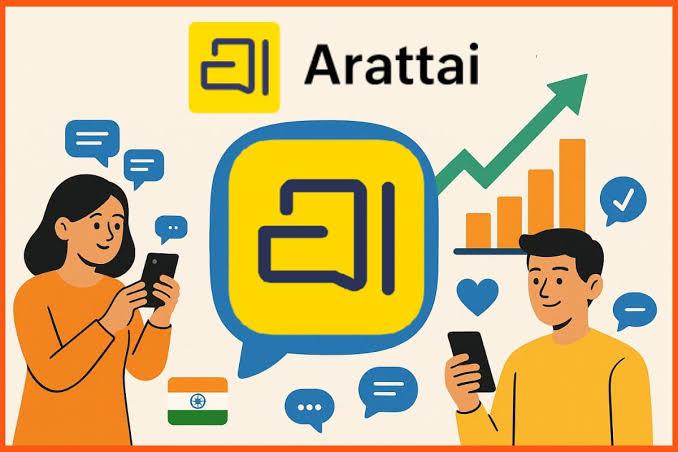Arattai, a homegrown messaging app developed by Zoho Corporation, is gaining traction in India as a privacy-focused alternative to WhatsApp. Backed by government calls for digital self-reliance and rising concerns over data sovereignty, Arattai offers unique features and enterprise-grade security, positioning itself as a serious contender in the messaging space.
Arattai’s Challenge to WhatsApp: India’s Push for Digital Autonomy Gains Momentum
In a bold move toward digital sovereignty, Arattai, an Indian messaging app developed by Zoho Corporation, is emerging as a formidable rival to WhatsApp. Amid growing concerns over data privacy and foreign tech dominance, Arattai’s rise is being fueled by both grassroots adoption and institutional endorsements.
Key Highlights of Arattai’s Rise:
Government-Endorsed Momentum
Arattai’s popularity surged following Prime Minister Modi’s call for self-reliance in digital platforms, especially amid trade tensions with the U.S.
The app has been promoted as a secure, indigenous alternative to foreign messaging services.
Supreme Court Nod
In a recent case, the Supreme Court of India suggested a petitioner use Arattai after being blocked from WhatsApp, reinforcing its credibility as a viable communication tool.
Unique Features and Privacy Focus
Arattai offers a “Pocket” feature for saving messages, Indian-hosted servers, and end-to-end encryption tailored for enterprise and personal use.
It emphasizes data sovereignty, ensuring user data remains within Indian jurisdiction.
Enterprise and Educational Adoption
The app is gaining traction among government bodies, educational institutions, and privacy-conscious users, thanks to its robust security and compliance features.
User Growth and Market Positioning
Arattai has seen a surge in downloads over the past month, becoming one of India’s top communication apps.
It is positioning itself not just as a WhatsApp clone, but as a feature-rich, secure, and scalable platform.
Challenges Ahead
Despite its momentum, Arattai faces hurdles in user retention, network effects, and global interoperability, areas where WhatsApp still holds a strong lead.
Arattai’s emergence reflects India’s broader ambition to build indigenous digital infrastructure and reduce dependency on foreign tech giants. Whether it can dethrone WhatsApp remains to be seen, but its rise signals a shift in user priorities toward privacy, control, and national tech pride.
Sources: Forbes, Training by Himanshu, Hindustan Times

